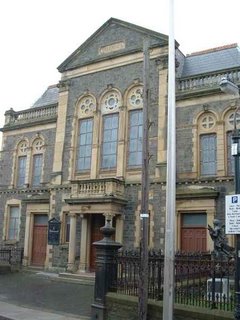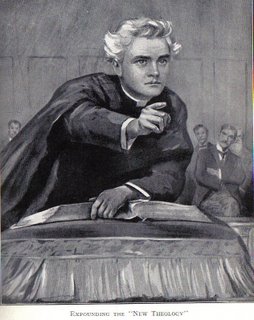'From the Mouths of Children'

In 1859, Revival came to Wales in a mighty way. The country was changed decisely. The Church of England went into a decline which would not be reversed until the end of the century, while the chapels were filled. But Revival did not break out everywhere at once. The beautiful town of Dolgellau in Merioneth was for a while left untouched, while the surroundingt district was set on fire for God. Despite the prayers of the people, the heavens seemed to be as brass.
Then, one night, the children of the town felt let to pray. Creeping into the vestry of one of the chapels, they lit a candle, being careful to black out the windows, so that no-one could see them the eldest of the children, who was only twelve, led with the opening phrases of the Lord's Prayer, the only prayer he knew.
And the Holy Spirit came! The children were at once 'filled with joy unspeakable and full of glory.' They threw open the doors of the chapel, and found the grown-ups coming to meet them, calling out, 'he is come!'
And that, lest we frown on emotionalism, is revival. Getting the strong impression to rush out of the house in the wee small hours of the morning, to celebrate the coming of the presence of God.
(the story is taken from W. Vernon Higham, The Turn of the Tide (Cardiff & Wheaton, 1995), pp.51-2. I came across it in recent reading.)




